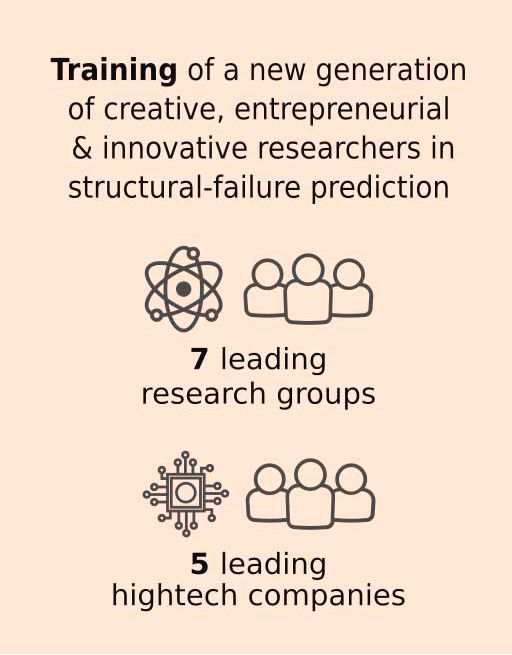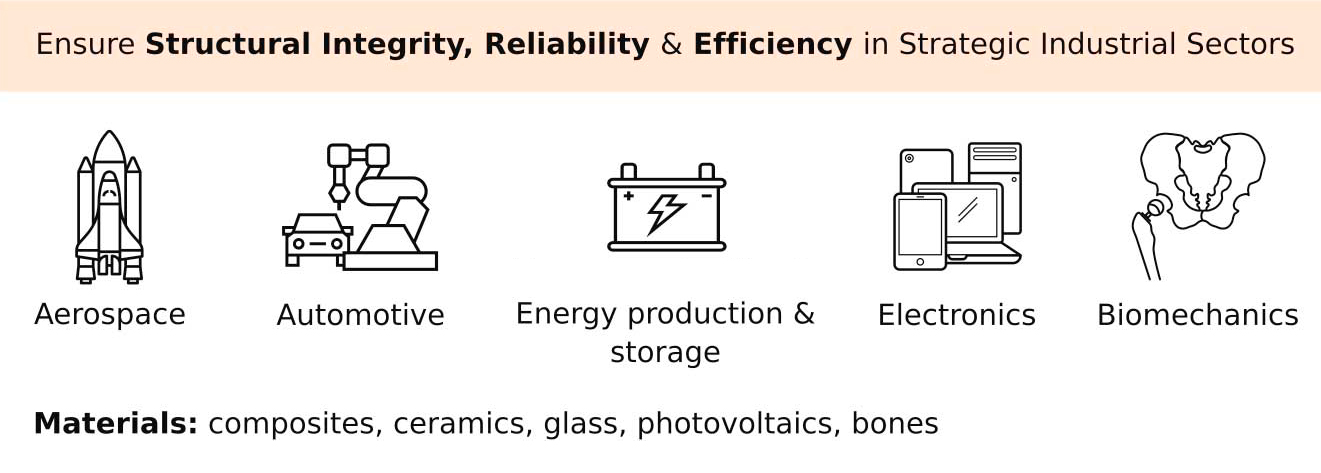NewFrac Training Network
A high-level training of a new generation of creative, entrepreneurial and innovative early-stage researchers (ESRs) through the development and engineering applications of a new modeling framework focused on the prediction and analysis of multi-field fracture phenomena in heterogeneous engineering systems at different scales
A high-level training of a new generation of creative, entrepreneurial and innovative early-stage researchers (ESRs), that will conduct their doctoral researches within this international academic structure, developing and engineering applications of a new modeling framework focused on the prediction and analysis of multi-field fracture phenomena in heterogeneous engineering systems at different scales.
NEWFRAC is the first coordinated initiative in EU aiming at the systematic progress in the failure prediction in heterogeneous systems through a novel computational framework by integrating Finite Fracture Mechanics and Phase Field modelling strategies.
The potential impact of this modelling and simulation framework in the design of heterogenous materials and structures can be enormous, for instance, in a weight reduction of about 10% with respect to the current design concepts, increasing the ratios of strength/weight and stiffness/weight.

Work Team

NEWFRAC network is composed of (a) 7 leading research groups, whose leaders are internationally recognized experts in the field of solid mechanics and fracture and experienced PhD trainers, and (b) 2+3 leading high-tech companies with a special interest as end-users on the developments and outcomes of this network.
This Work Team is constituted by the project’s “BENEFICIARIES”, who have formally constituted a Consortium in which all members play a fundamental role for the correct governance and development of the project and the pursuit of the researches, and by the “PARTNER ORGANIZATIONS” which provide support and advice to the network.
Strategic Industrial Sectors
Highly efficient and reliable failure-predictive computational tools are critical for the structural integrity, reliability, and efficiency of different highly technological systems and components that are widely produced and used. Through Individual Research Projects (IRPs)», ESRs will develop new failure-predictive computational tools, entailing multi-field, multi-material and multi-scale fracture analyses, and apply them to relevant problems in the strategic industrial sectors in which the Project is focused on:
- Energy (Production and Storage and Electronics), e.g.: Systems for storage and renewable energy production such as lithium-ion batteries, photovoltaic modules, solar thermal collectors and solid oxide fuel cells or new generation of electronics (stretchable/wearable) and micro- and nano-electromechanical systems (MEMS/NEMS).
- Health (Biomechanics), e.g.: Biomechanical systems for surgery and disease treatments
- Transport (Aerospace and Automotive), e.g.: Structural ceramics and fiber-reinforced composites in the aeronautical, space and automotive industries.

Download our leaflet and post it in your department

